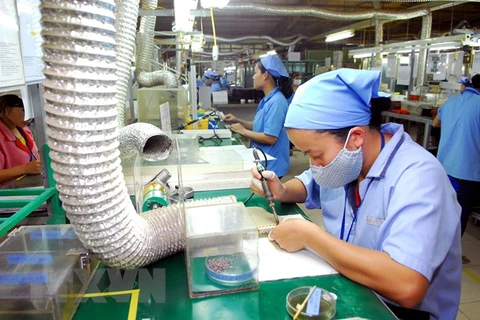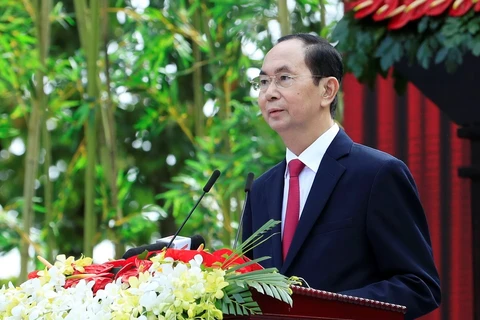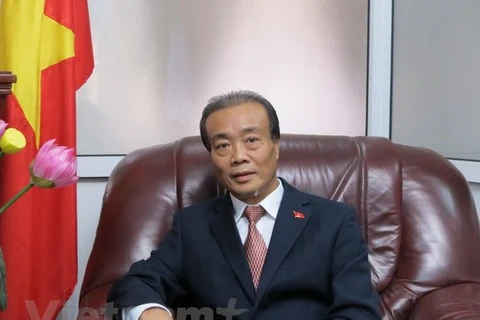Algiers (VNA) – With a population of 1.2 billion and a high economic growth rate in recent years, Africa is a promising market for Vietnam, according to the Vietnamese trade counsellor in charge of several African countries.
Hoang Duc Nhuan, trade counsellor of Vietnam in Algeria, Senegal, Mali, Niger and Gambia, said Vietnam has set up trade ties with most of 55 countries in Africa, and total trade between Vietnam and the Black Continent increased from 5.2 billion USD in 2015 to 6.7 billion USD in 2017, of which Vietnam’s exports were valued at 2.7 billion USD.
In the first three month of 2018, Vietnam shipped 723.7 million USD worth of goods to Africa, up 20 percent year on year, and imported 212.7 million USD of Africa’s products, down 67 percent.
Major trade partners of Vietnam in Africa are Ivory Coast, South Africa, Ghana, Egypt, Algeria, Morocco, Nigeria, Cameroon and Benin.
Vietnam sells to Africa mobile phones, computers and parts, textile-garment, footwear, agricultural products (rice, coffee, pepper bean, copra, cashew nut, tra and basa fish, and shrimp), and construction materials, while buying raw materials such as unprocessed cashew nut, cotton, wood, copper, minerals and animal feed.
Besides trade, investment ties have also been expanded. As of the end of 2018, businesses from 16 countries and territories in Africa had invested in Vietnam with 247 projects worth 1.56 billion USD. Their projects mostly involved processing and manufacturing, wholesale and retail, repairing, science-technology, hospitality and consultation. Meanwhile, Vietnamese firms invested in 33 projects worth nearly 2.6 billion USD in 12 African countries (statistics as of the end of 2015), focusing on oil and gas, telecommunication, hydro electric power and wood processing.
The trade counsellor said a high economic growth has bolstered consumption demand in Africa, while the local industrial sector is under developed. Therefore, total imports of the continent are forecast to reach 1.2 trillion USD in 2020 from 480 billion USD in 2016. This promises big opportunities for Vietnamese goods, which are well received in this market.
In addition, natural disasters and political unrests greatly affect food production in the continent, forcing many African countries to import food. Total spending on importing agricultural products is expected to increase to 110 billion USD in 2025 from 35 billion USD in 2016.
43 out of 55 countries in Africa have joined the World Trade Organisation (WTO) and gradually removed import tariff and non-tariff trade barriers, facilitating imports.
Africa also holds attractive reward for investment, as the continent boasts abundant raw materials. Investors not only benefit from the available sources of materials and labour but also become eligible for preferential tax when exporting to other countries in the region as well as to the EU and the US.
In particular, 44 African countries signed an agreement on the Continental Free Trade Area (CFTA) in March this year, under which they commit to remove tariffs for more than 90 percent of goods in the future. Therefore, investment in the continent will facilitate access to those markets.
But Nhuan cautioned that it is not without any problems when doing business with Africa. According to him, political and social instability, coupled with big differences in language, culture, legal framework and business practice, pose considerable obstacles to trade and investment ties.
Besides, Vietnam has few diplomatic and trade representative offices in Africa, with eight embassies and five trade offices at present, which cause difficulties in getting visas, or in collecting market information and holding trade promotion activities.
Vietnamese firms are also deterred by trade frauds and payment methods when doing business with African peers, while the legal framework for business activities is incomplete, according to Nhuan. -VNA
VNA
























